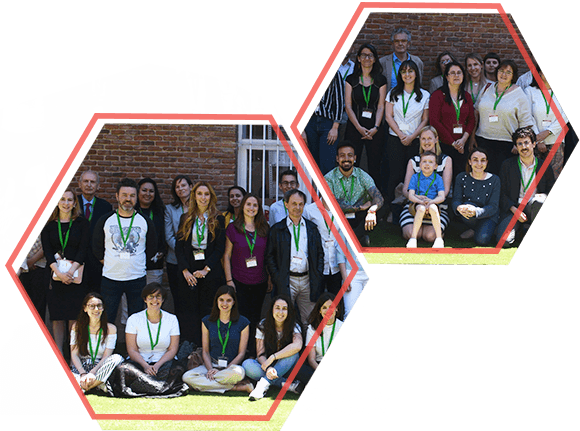Patients & Caregivers:
Pyruvate Kinase Deficiency
Resources

FAQs about Rocket’s Gene Therapy Approach to PKD
PKD is a rare, genetic blood disorder characterized by excessive rupture of red blood cells (RBCs); resulting in frequent, chronic anemia that can lead to in life-threatening complications for patients with the severe form of the disease. PKD is caused by a defect in the PKLR gene which is found in RBCs. RBCs are responsible for carrying oxygen to the rest of the body. The PKLR gene in RBCs produces a protein (enzyme) called pyruvate kinase (PK), which is necessary for producing energy in RBCs and helps keep RBCs intact. When the PKLR gene has a defect, RBCs are limited in their ability to produce energy and stay intact because they lack the PK enzyme. Without the PK enzyme, RBCs break down faster than the body can make them. As a result, patients with PKD frequently have anemia, chronic fatigue, yellowing of the skin and eyes (jaundice) and large spleens.
Blood stem cells are first collected from a patient. These stem cells are then genetically modified in a laboratory to introduce a correct copy of the PKLR gene using a virus that has been changed so that the virus cannot grow, spread or cause an infection. The patient is then given a type of chemotherapy medication called busulfan to remove existing bone marrow cells to make room for the genetically modified stem cells (this is also known as conditioning therapy). After receiving busulfan, the patient is given an intravenous infusion of the genetically modified blood stem cells, similar to having a transfusion. These genetically modified stem cells are expected to return to the bone marrow and to make new blood cells, including new RBCs with the functioning PK enzyme. Having a functioning PK enzyme is expected to prevent destruction of RBCs and as a result, correct anemia and reduce or prevent the need for blood transfusions in patients.
Eligible patients are 8-55 years of age who:
- Have a PKD diagnosis with a confirmed PKLR mutation;
- Have anemia;
- Have been Splenectomized (spleen removed);
- Have no evidence of severe organ damage;
- Adequate heart, lung, kidney, and liver function;
- Availability of detailed medical records, including accurate transfusion history and blood count assessments;
- Willing and able to read and correctly understand the patient information sheet and provide consent (or informed assent for minors) regarding study participation, willing and able to comply with all study-related procedures including follow-up visits;
- Negative serum pregnancy test for female patients of childbearing potential.
Full inclusion criteria can be found on clinicaltrials.gov.
Click here for information about steps involved in the trial.
Financial support, including travel arrangements and housing accommodation for patients and a family member, both for the treatment and follow-up visits, will be provided. This will also include assistance with passports, medical visas and translation services for patients and families if these are needed.
To learn more about the PKD gene therapy clinical trial email:
[email protected]
